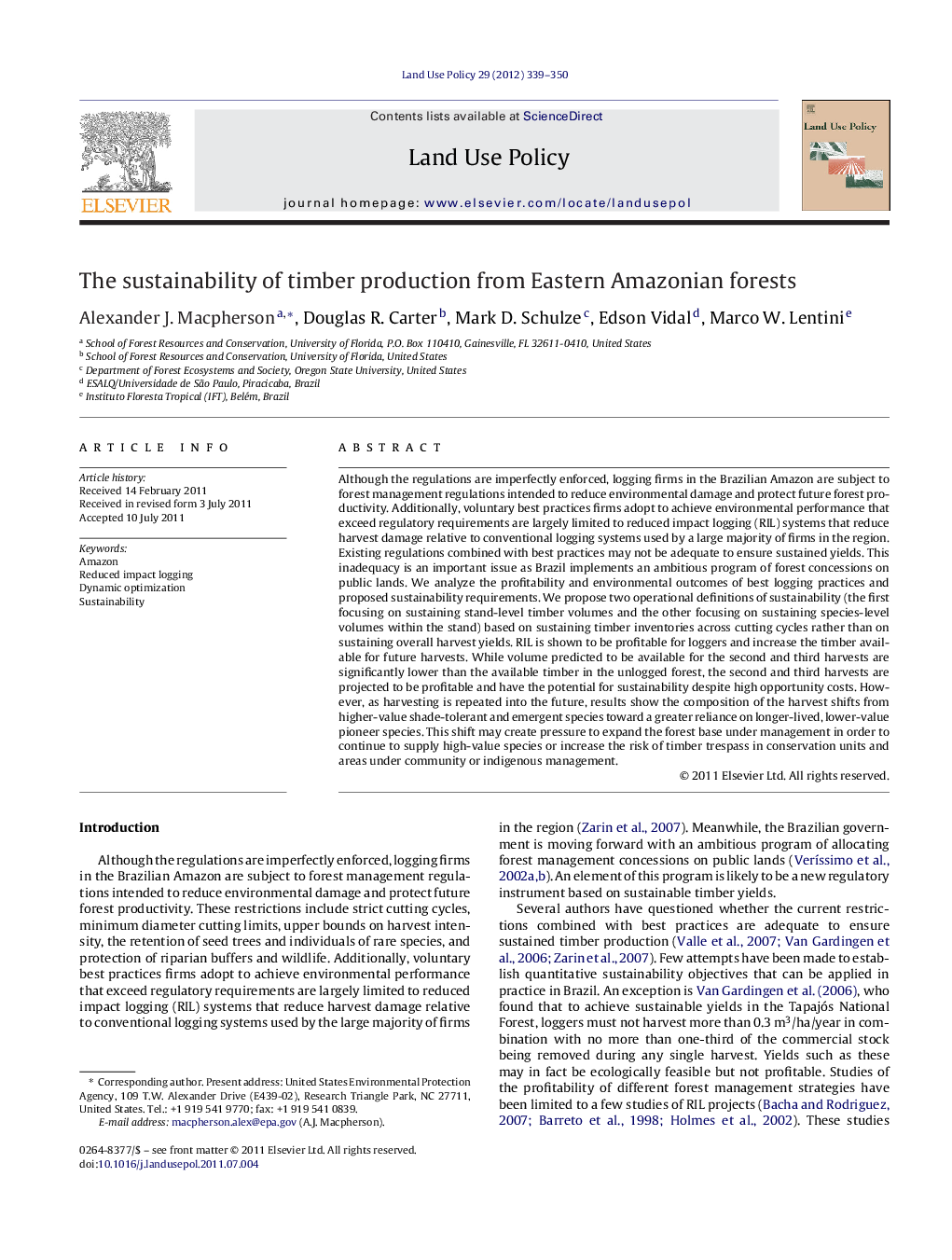| Article ID | Journal | Published Year | Pages | File Type |
|---|---|---|---|---|
| 93309 | Land Use Policy | 2012 | 12 Pages |
Although the regulations are imperfectly enforced, logging firms in the Brazilian Amazon are subject to forest management regulations intended to reduce environmental damage and protect future forest productivity. Additionally, voluntary best practices firms adopt to achieve environmental performance that exceed regulatory requirements are largely limited to reduced impact logging (RIL) systems that reduce harvest damage relative to conventional logging systems used by a large majority of firms in the region. Existing regulations combined with best practices may not be adequate to ensure sustained yields. This inadequacy is an important issue as Brazil implements an ambitious program of forest concessions on public lands. We analyze the profitability and environmental outcomes of best logging practices and proposed sustainability requirements. We propose two operational definitions of sustainability (the first focusing on sustaining stand-level timber volumes and the other focusing on sustaining species-level volumes within the stand) based on sustaining timber inventories across cutting cycles rather than on sustaining overall harvest yields. RIL is shown to be profitable for loggers and increase the timber available for future harvests. While volume predicted to be available for the second and third harvests are significantly lower than the available timber in the unlogged forest, the second and third harvests are projected to be profitable and have the potential for sustainability despite high opportunity costs. However, as harvesting is repeated into the future, results show the composition of the harvest shifts from higher-value shade-tolerant and emergent species toward a greater reliance on longer-lived, lower-value pioneer species. This shift may create pressure to expand the forest base under management in order to continue to supply high-value species or increase the risk of timber trespass in conservation units and areas under community or indigenous management.
► Brazil is implementing an ambitious program of forest concessions in the Amazon region. ► We examine whether existing regulations combined with best practices ensure sustained timber yields. ► Reduced impact logging is shown to be profitable and increase the timber available for future harvests. ► Results show the composition of future harvest shifts from higher-value species to lower-value species. ► Species shifts may create pressure to expand land under management or increase the risk of illegal logging.
